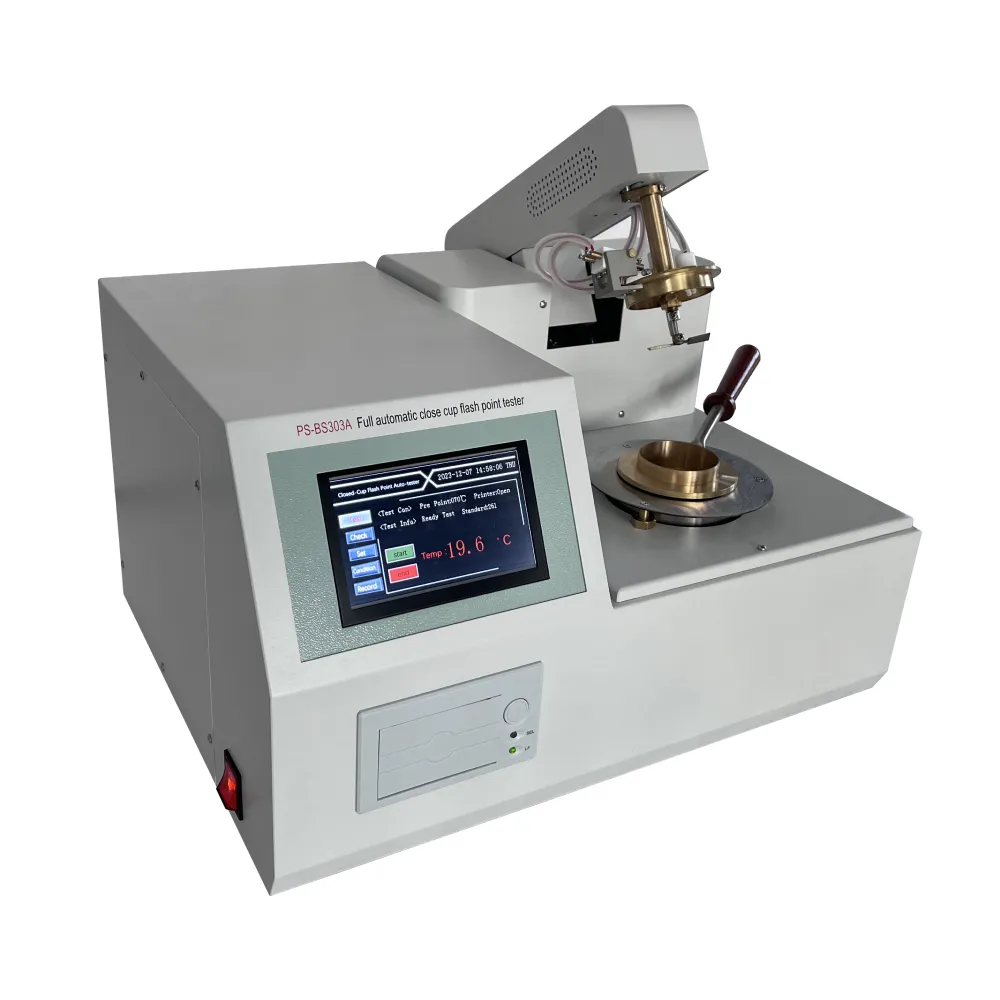TEL:
+86-0312-3189593
 English
English

Telephone:0312-3189593

Email:sales@oil-tester.com

-
 Afrikaans
Afrikaans -
 Albanian
Albanian -
 Amharic
Amharic -
 Arabic
Arabic -
 Armenian
Armenian -
 Azerbaijani
Azerbaijani -
 Basque
Basque -
 Belarusian
Belarusian -
 Bengali
Bengali -
 Bosnian
Bosnian -
 Bulgarian
Bulgarian -
 Catalan
Catalan -
 Cebuano
Cebuano -
 China
China -
 China (Taiwan)
China (Taiwan) -
 Corsican
Corsican -
 Croatian
Croatian -
 Czech
Czech -
 Danish
Danish -
 Dutch
Dutch -
 English
English -
 Esperanto
Esperanto -
 Estonian
Estonian -
 Finnish
Finnish -
 French
French -
 Frisian
Frisian -
 Galician
Galician -
 Georgian
Georgian -
 German
German -
 Greek
Greek -
 Gujarati
Gujarati -
 Haitian Creole
Haitian Creole -
 hausa
hausa -
 hawaiian
hawaiian -
 Hebrew
Hebrew -
 Hindi
Hindi -
 Miao
Miao -
 Hungarian
Hungarian -
 Icelandic
Icelandic -
 igbo
igbo -
 Indonesian
Indonesian -
 irish
irish -
 Italian
Italian -
 Japanese
Japanese -
 Javanese
Javanese -
 Kannada
Kannada -
 kazakh
kazakh -
 Khmer
Khmer -
 Rwandese
Rwandese -
 Korean
Korean -
 Kurdish
Kurdish -
 Kyrgyz
Kyrgyz -
 Lao
Lao -
 Latin
Latin -
 Latvian
Latvian -
 Lithuanian
Lithuanian -
 Luxembourgish
Luxembourgish -
 Macedonian
Macedonian -
 Malgashi
Malgashi -
 Malay
Malay -
 Malayalam
Malayalam -
 Maltese
Maltese -
 Maori
Maori -
 Marathi
Marathi -
 Mongolian
Mongolian -
 Myanmar
Myanmar -
 Nepali
Nepali -
 Norwegian
Norwegian -
 Norwegian
Norwegian -
 Occitan
Occitan -
 Pashto
Pashto -
 Persian
Persian -
 Polish
Polish -
 Portuguese
Portuguese -
 Punjabi
Punjabi -
 Romanian
Romanian -
 Russian
Russian -
 Samoan
Samoan -
 Scottish Gaelic
Scottish Gaelic -
 Serbian
Serbian -
 Sesotho
Sesotho -
 Shona
Shona -
 Sindhi
Sindhi -
 Sinhala
Sinhala -
 Slovak
Slovak -
 Slovenian
Slovenian -
 Somali
Somali -
 Spanish
Spanish -
 Sundanese
Sundanese -
 Swahili
Swahili -
 Swedish
Swedish -
 Tagalog
Tagalog -
 Tajik
Tajik -
 Tamil
Tamil -
 Tatar
Tatar -
 Telugu
Telugu -
 Thai
Thai -
 Turkish
Turkish -
 Turkmen
Turkmen -
 Ukrainian
Ukrainian -
 Urdu
Urdu -
 Uighur
Uighur -
 Uzbek
Uzbek -
 Vietnamese
Vietnamese -
 Welsh
Welsh -
 Bantu
Bantu -
 Yiddish
Yiddish -
 Yoruba
Yoruba -
 Zulu
Zulu
ມ.ກ. . 30, 2025 01:06
Back to list
transformer testing and commissioning
Transformer testing and commissioning are crucial steps in the deployment of electrical transformers, ensuring their reliability and efficiency in power transmission and distribution. As an integral part of modern electrical infrastructure, transformers need to undergo rigorous testing and commissioning processes to verify their performance and safety.
Trustworthiness is paramount in the transformer industry, where the stakes involve not only large financial investments but also public safety. To build this trust, companies often publish their testing methodologies and results, providing transparency to clients and stakeholders. Moreover, the use of digital documentation and advanced software in monitoring the testing process allows for more reliable record-keeping, facilitating audits and reviews. Trust is further enhanced by engaging third-party experts to verify testing outcomes, thereby adding an extra layer of assurance for quality and integrity. From a product perspective, the emphasis on high-quality transformer testing and commissioning processes serves to enhance the operational lifecycle of transformers. By identifying issues such as insulation degradation or core anomalies early, these procedures help prevent costly downtimes and extend the equipment's service life. The products used in testing, ranging from diagnostic software to portable testing devices, are continuously evolving to offer more accurate and efficient results. These technological advancements not only improve the precision of testing but also reduce human error, leading to more reliable commissioning. Companies specializing in these services often invest heavily in research and development, striving to innovate and remain at the forefront of the industry. This commitment to innovation further reflects the trustworthiness and authority of their testing and commissioning services, providing assurance that transformers will perform optimally in various operational scenarios. In summary, transformer testing and commissioning are vital processes underscored by deep experience, refined expertise, authoritative standards, and a commitment to trust. The rigorous and systematic approach to these activities ensures that transformers are safe, reliable, and efficient, ultimately safeguarding both financial investments and public welfare.


Trustworthiness is paramount in the transformer industry, where the stakes involve not only large financial investments but also public safety. To build this trust, companies often publish their testing methodologies and results, providing transparency to clients and stakeholders. Moreover, the use of digital documentation and advanced software in monitoring the testing process allows for more reliable record-keeping, facilitating audits and reviews. Trust is further enhanced by engaging third-party experts to verify testing outcomes, thereby adding an extra layer of assurance for quality and integrity. From a product perspective, the emphasis on high-quality transformer testing and commissioning processes serves to enhance the operational lifecycle of transformers. By identifying issues such as insulation degradation or core anomalies early, these procedures help prevent costly downtimes and extend the equipment's service life. The products used in testing, ranging from diagnostic software to portable testing devices, are continuously evolving to offer more accurate and efficient results. These technological advancements not only improve the precision of testing but also reduce human error, leading to more reliable commissioning. Companies specializing in these services often invest heavily in research and development, striving to innovate and remain at the forefront of the industry. This commitment to innovation further reflects the trustworthiness and authority of their testing and commissioning services, providing assurance that transformers will perform optimally in various operational scenarios. In summary, transformer testing and commissioning are vital processes underscored by deep experience, refined expertise, authoritative standards, and a commitment to trust. The rigorous and systematic approach to these activities ensures that transformers are safe, reliable, and efficient, ultimately safeguarding both financial investments and public welfare.
Previous:
Latest news
-
Using Distillation Range Testers in the Food and Beverage IndustryNewsApr.16,2025
-
The Impact of IoT on Distillation Range Tester PerformanceNewsApr.16,2025
-
The Best Distillation Range Testers for Extreme ConditionsNewsApr.16,2025
-
How Distillation Range Testers Save Time and MoneyNewsApr.16,2025
-
Distillation Devices for Advanced Separation TechniquesNewsApr.16,2025
-
Common Mistakes to Avoid When Using a Distillation Range TesterNewsApr.16,2025



